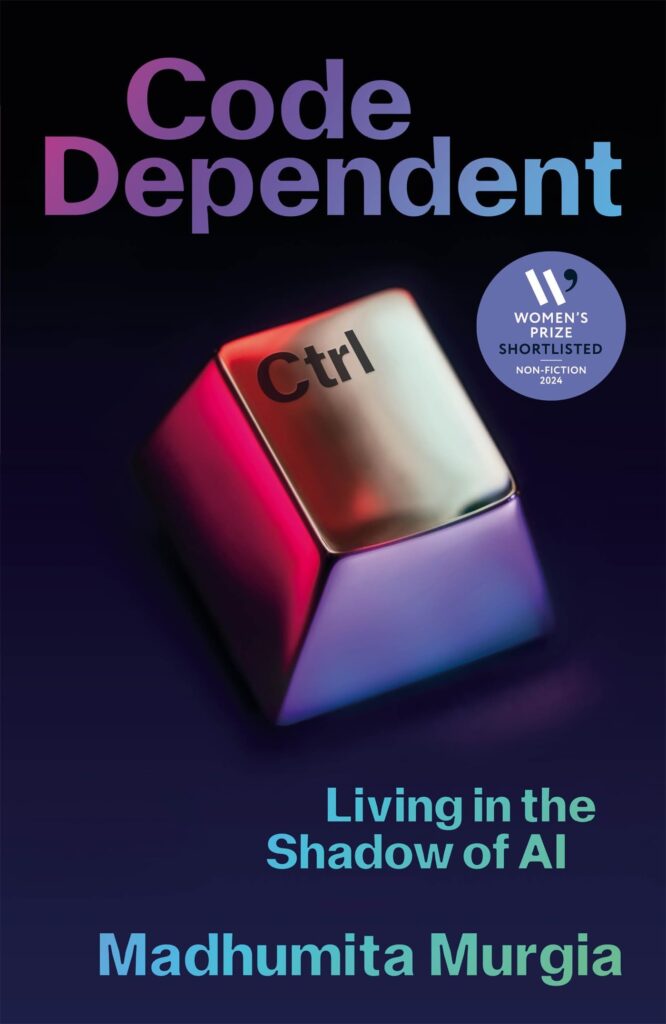Code-Dependent: Living in the Shadow of AI by Madhumita Murgia asks what it means to be human in a world that is rapidly changing thanks to the development of artificial intelligence.
Longlisted for the 2024 Women’s Prize for Non-Fiction, judge Professor Nicola Rollock said ‘This is a chilling and essential read about AI and the way it imports and exacerbates existing social inequalities.’
To find out more about the book we spoke to Madhumita about her writing, research and current reads.

Describe your book in one sentence as if you were telling a friend.
This is a book about how artificial intelligence is changing our experience of being human, told through the stories of ordinary individuals across eight countries, and their encounters with AI.
Did you have any revelation moments when writing your book? When the narrative and your objectives all fell into place?
I knew I wanted to tell the stories of regular people, rather than the Silicon Valley entrepreneurs whom we tend to place on a pedestal, and I hoped that through these lives I could evoke a fuller picture of how AI is changing our society in small and large ways. But there was a moment of revelation for me when I realised the people I had unconsciously chosen to focus on were marginalised or minorities – whether from a gender, race, religion, socioeconomic or regional perspective, including women, African-Americans, war refugees, gig workers or tribal communities. And in most cases, AI had made their lives harder. It led me to explore the hypothesis that while AI technologies are ostensibly designed to reduce inequality, they may actually end up exacerbating them, with power being further concentrated in the hands of Californian billionaires. That became the philosophical and political thread underpinning the narrative.
What is the one thing you’d like a reader to take away from reading your book?
My book shows how AI is weakening our individual agency as humans – much like the recent Post Office scandal where humans were sacrificed at the altar of so-called sophisticated technology. But I hope that readers feel empowered to reverse this, through understanding that it’s not necessarily AI itself but how we implement and oversee it as a society that matters – and that’s something we can all control.
Which other female non-fiction writers inspire you and why? Any particular title?
I loved Invisible Women by Caroline Criado Perez, particularly how she uses data and storytelling to reveal the huge gender inequities we see across a wide swathe of industries. Other non-fiction work I’ve loved and been inspired by include (M)otherhood by Pragya Agarwal, The Immortal Life of Henrietta Lacks by Rebecca Skloot and science writers Angela Saini and Mary Roach.
What is the best piece of writing advice you have ever received?
If something doesn’t serve to push forward the narrative, to help the reader move mentally forward with you on your journey, get rid of it (even if you’re partial to it!)
What book is currently on your nightstand?
Tom Lake by Ann Patchett and a proof of my former colleague Yuan Yang’s forthcoming book Private Revolutions.








